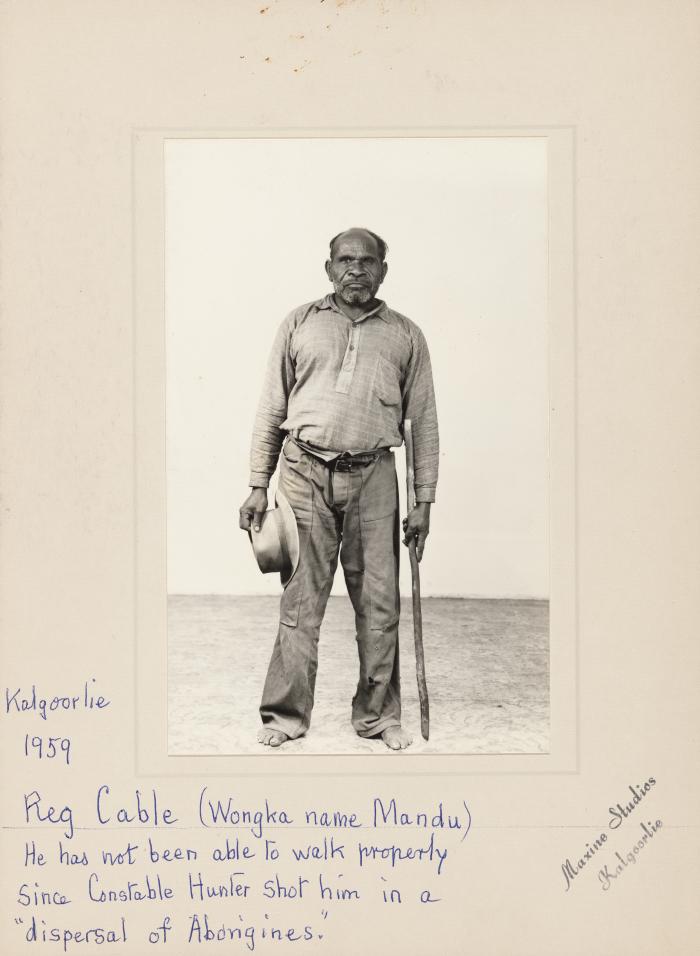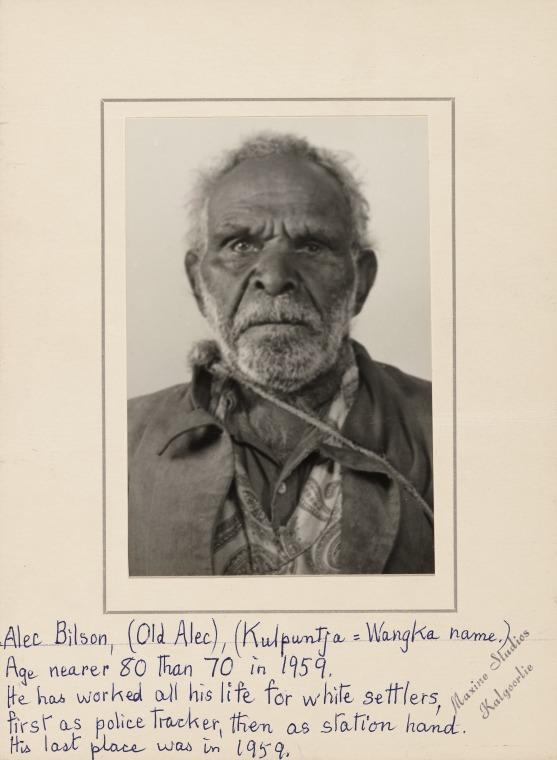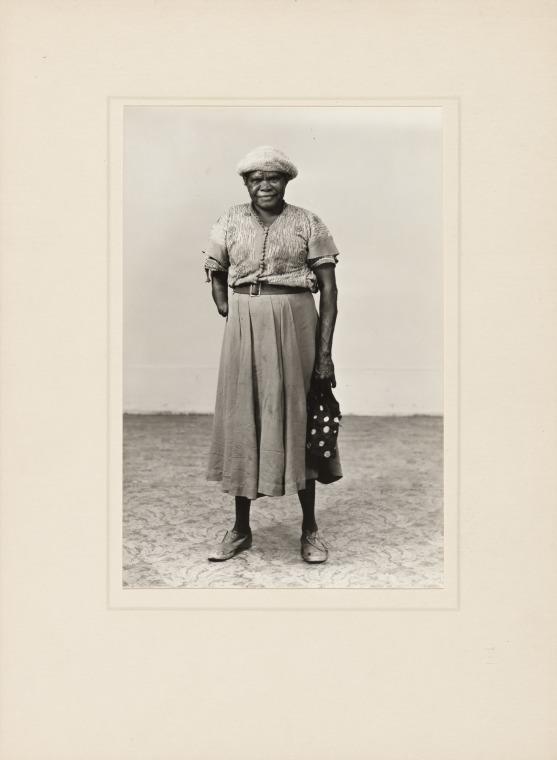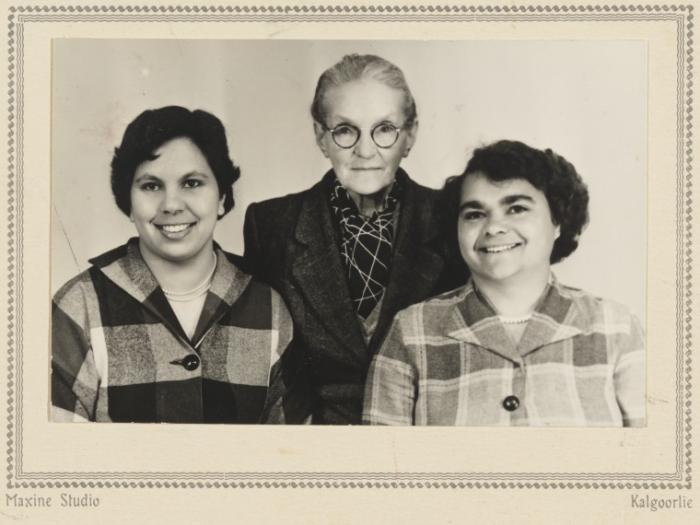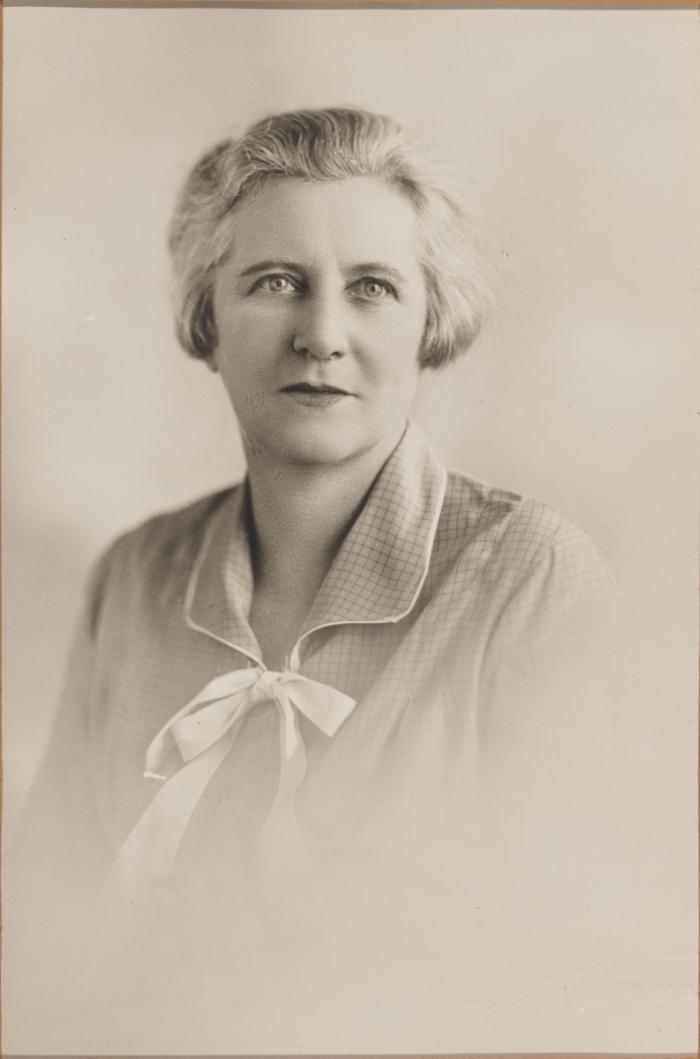Aboriginal and Torres Strait Islander visitors are advised that this page includes photographs and names of people who are now deceased.
This week Dr Kate discusses a small selection of material from the Mary Montgomerie Bennett and Ada Bromham Collection, which serves to document Aboriginal people's self-determination for controlling their own lives in the face of systemic discrimination. The showcased papers and photographs tell the story of some of the Aboriginal people in the Goldfields who worked with Mary to request old-age and disability pensions from the Western Australian government. Those requesting the pensions, such as Reg, Alec and Lulu who are featured below, had worked hard their whole lives in the pastoral or prospecting industries, at times without pay or only minimal payment often in the form of rations, and were left without independence or financial support in their old age.
Many Aboriginal people came to Mary Bennett to get assistance with their pension requests, since the systems were difficult to navigate for those with low literacy skills or English as a second or third language. Furthermore, the Commissioner for Native Affairs and department workers exploited a discriminatory section in the Social Services Act 1947 and erected bureaucratic barriers to deny many Aboriginal people access to pensions they rightfully deserved.
Mandu (Reg Cable)
As an adolescent, Reg was shot by a police officer and the injury left him disabled, restricting his ability to perform the laborious, physical tasks required within the pastoral or prospecting industries. Other avenues of employment were not open to him, as they might have been to a non-Aboriginal man with a similar disability due to language and literacy barriers, as well as racial profiling. He came to Mary to request assistance with accessing a disability pension.
Reg was shot by David Hunter, who was known for his violence towards Aboriginal peoples in Laverton and nearby towns. There were no repercussions for any of the instances of brutality he regularly inflicted on Aboriginal peoples and he went on to be made Commissioner of Police in WA.
Kulpuntja (Alec Bilson) & Kowituku (Lulu Bilson)
Alec Bilson was an experienced dogger and expert tracker. He had a varied career working for the police for twenty years, followed by work on pastoral stations with his wife Lulu.
While working on a station, Lulu was bitten by a snake. The station manager, Mr Brockman, treated the bite, but negligently left a ligature on for too long. Lulu’s arm deteriorated and needed to be amputated for her to survive. There was no compensation for Lulu.
Once Alec was too old to work, he and Lulu applied multiple times for old-age and disability pensions. They were repeatedly denied by the department allegedly on the grounds that Alec’s age could not be confirmed by a government trusted source. In her letters, Mary talks about how Alec was bitterly disappointed by the delays to receiving the pension, as he and the others just wanted autonomy and to handle their own affairs free of government control.
Search the catalogue for the Mary Montgomerie Bennett and Ada Bromham collection to see the other photographs and stories online.
Mary Bennett & Ada Bromham
Mary Montgomerie Bennett was a teacher and advocate for Aboriginal rights. Born in London, she spent her childhood in Australia before returning to England. Her father was a pastoralist in Queensland, and it is from his example that she developed empathy for Indigenous peoples in Australia. After her husband died, Mary returned to Australia to devote herself to supporting Aboriginal people's fight for rights. She spent some time at the United Aborigines Mission in Gnowangerup and Forrest River Mission, before settling at Mount Margaret Mission in 1932, which was managed by Pastor Rodolphe Schenk. There she taught literacy, numeracy, craft, and vocational training. She was constant in her agitation for Aboriginal rights. She used her connections to spread the cause and was a thorn in the side of politicians and officials. She retired to Kalgoorlie in the 1950s, which is where she met, Reg, Alec, and Lulu.
Ada Bromham was a Western Australian feminist who was involved in a number of progressive movements. She corresponded closely with Mary Bennett and worked with her to advocate for Aboriginal rights.
Both Mary and Ada had the class, education, and social privilege to enable them to focus on this work and devote time to the cause of championing human rights and more specifically, Aboriginal rights.
The images from the Mary Montgomerie Bennett and Ada Bromham collection are available for Aboriginal and Torres Strait Islander peoples to access through Storylines. Storylines is a platform for digital repatriation and identification of the State Library’s Indigenous heritage collections.
Recorded live on ABC Radio Perth on 16 June 2020.
